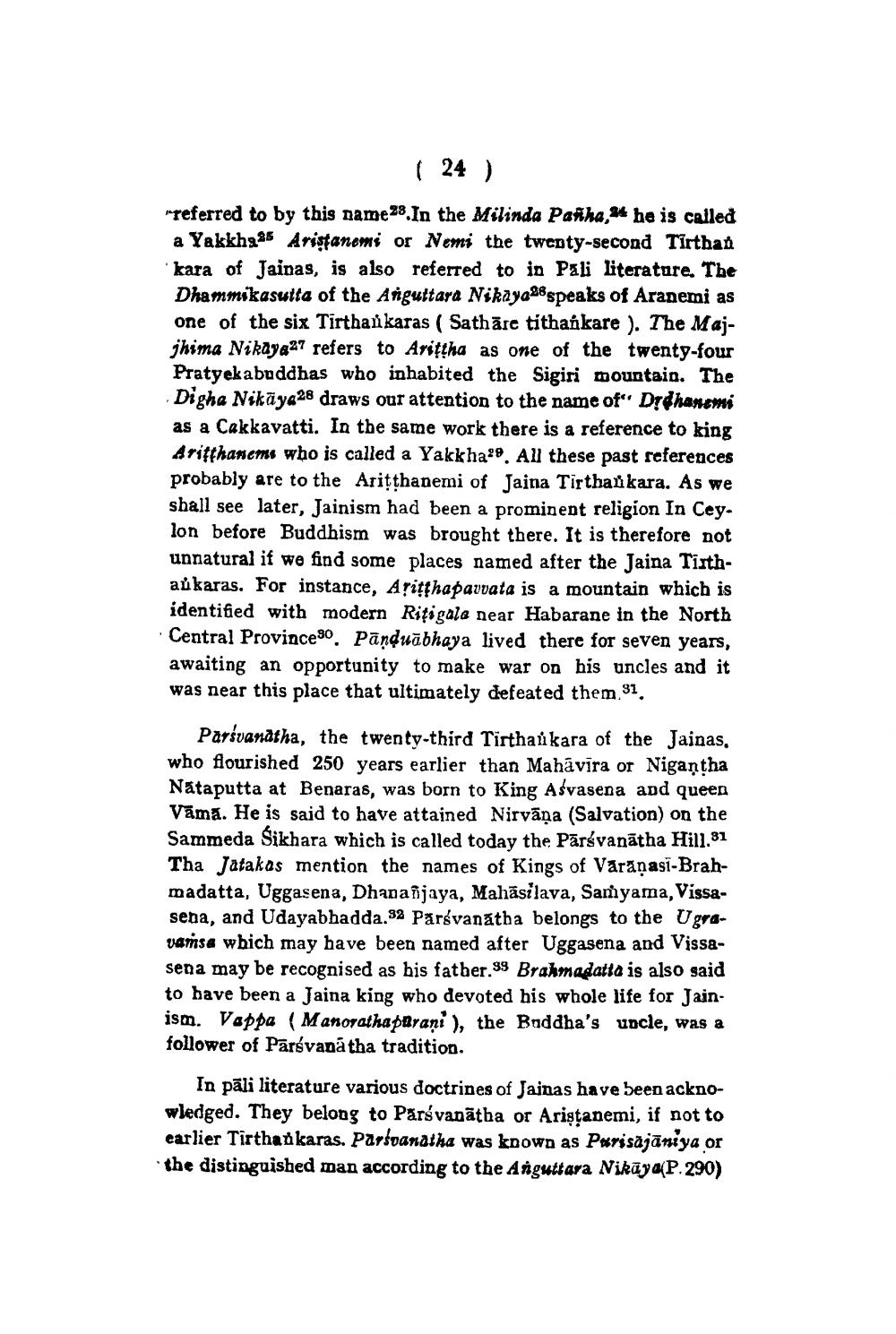________________
( 24 )
"referred to by this name 28. In the Milinda Patha, he is called a Yakkha 86 Aristanems or Nemi the twenty-second Tirthan kara of Jainas, is also referred to in Pali literature. The Dhammikasutta of the Anguttara Nikaya28speaks of Aranemi as one of the six Tirthankaras ( Sathāre tithaíkare ). The Majjhima Nikay427 refers to Arittha as one of the twenty-four Pratyek abuddhas who inhabited the Sigiri mountain. The Digha Nikāya28 draws our attention to the name of Drdhanemi as a Cakkavatti. In the same work there is a reference to king Ariffhanemi who is called a Yakkha?9. All these past references probably are to the Ariţthanemi of Jaina Tirthaikara. As we shall see later, Jainism had been a prominent religion In Ceylon before Buddhism was brought there. It is therefore not unnatural if we find some places named after the Jaina Tirthaůkaras. For instance, Ațitthapavvata is a mountain which is identified with modern Ritigala near Habarane in the North Central Provinces. Pānduābhaya lived there for seven years, awaiting an opportunity to make war on his uncles and it was near this place that ultimately defeated them 31,
Parsvanatha, the twenty-third Tirthaúkara of the Jainas, who flourished 250 years earlier than Mahāvīra or Nigantha Nataputta at Benaras, was born to King A svasena and queen Vāma. He is said to have attained Nirvāṇa (Salvation) on the Sammeda Sikhara which is called today the Pārsvanātha Hill.81 Tha Jatakas mention the names of Kings of Varāṇasi-Brahmadatta, Uggasena, Dhananjaya, Mahāsilava, Samyama, Vissasena, and Udayabhadda.32 Parsvanatha belongs to the Ugravaṁsa which may have been named after Uggasena and Vissasena may be recognised as his father. 99 Brahmadatta is also said to have been a Jaina king who devoted his whole life for Jainism. Vappa (Manorathaparani ), the Buddha's uncle, was a follower of Parávaná tha tradition.
In pāli literature various doctrines of Jainas have been acknowledged. They belong to Parsvanātha or Aristanemi, if not to earlier Tirtha karas. Parsvanatha was known as Purisajāniya or the distinguished man according to the Anguttara Nikāya(P. 290)




